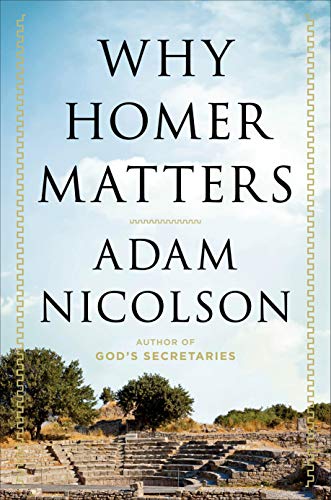When you’re trying to keep up with the best new writers out there, it’s easy to forget the debt we owe to the classics. So let’s go back to the beginning: Why Homer Matters, a new book by Adam Nicholson on the father of all poets, explores the question of who Homer was, and whether or not he was even one person. You could also read Frank Kovarik on the parallels between The Odyssey and Toni Morrison’s Beloved.
